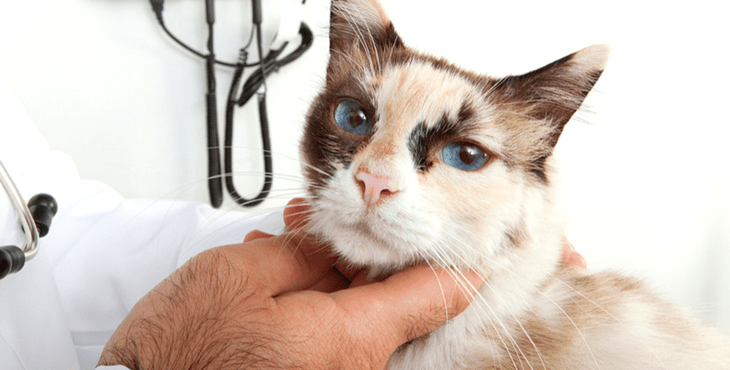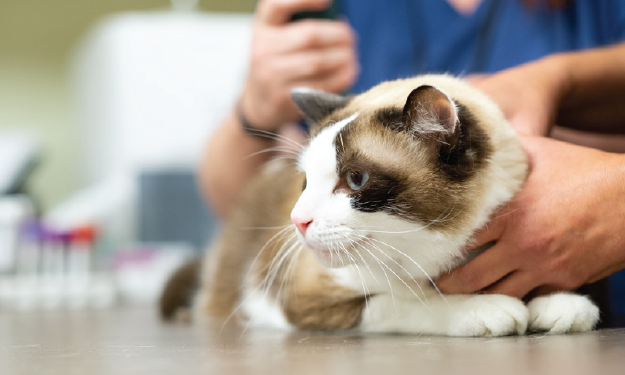
It is estimated that one in five cats will develop cancer in their lifetime. The possibility of something going wrong in an animal’s body increases over time. Therefore, if you see a significant change in the behavior of an older cat, you should be concerned. To help you distinguish between normal conditions and diseases, here are some signs that may indicate your cat may have cancer.
No one likes to talk about malignant tumors, but unfortunately, this disease is common in human society and animals as well. However, if such conditions are diagnosed in time, it can mean the difference between life and death for your pet. Even though it is an unpleasant subject, it is necessary to know about it.
1) The Appearance of Nodules Under the Skin
The appearance of a lump under the skin of an animal is usually not a sign of cancer, but lymphoma requires close attention. Lymphomas account for 30% of all tumors and come in various types but always have one common feature: a pathological overproduction of lymphocytes.
Some lymphomas cause gastrointestinal symptoms, while others cause lymphadenopathy. In the latter case, inflammation can be seen under the cat’s skin that does not correspond to a wound or bruise.
2) Breast Lumps
Ninety percent of mammary tumors in cats are cancerous. So, if you find a lump on or near your cat’s nipple when you massage her tummy, you should suspect the worst. This cancer is very aggressive and can quickly spread to other tissues. Therefore, it should be removed as soon as possible, and chemotherapy should be administered.
3) Chronic Weight Loss
Chronic weight loss is a sign of illness in cats, but it is not necessarily caused by cancer. When this occurs, it usually indicates that the main tumor has spread to other parts of the body. In any case, it is always a bad sign.
4) Bad Breath
Bad breath from the mouth, especially if the mouth is swollen, can be one of the signs that a cat has cancer. When this happens, the animal will bleed from the edges of its lips and will have difficulty eating. Here, the animal may also lose its teeth.
5) Wounds and Rashes That Do Not Heal
Skin ulcers are one indication that your cat has cancer, especially melanoma or breast cancer. In general, wounds that do not heal or are continuously infected indicate that the animal’s immune system is not functioning correctly. It is also possible that a tumor mass is pressing on specific structures of the skin.

6) Lumps On The Skin
Melanoma accounts for only 0.5% of all feline tumors, but if you see a distinct black mass on your animal’s skin, you need to pay close attention regardless of where it appears. This clinical sign should always be checked by a veterinarian.
7) Changes in Appetite
A change in appetite is one of the most common signs of cancer in cats, but there are many other causes as well. For example, your pet may be stressed, have food intolerances, or have gastrointestinal problems. These changes are common but should not continue for more than 24 hours without consulting a veterinarian.
8) Persistent Cough
In cats, coughing usually presents as an inflammation of the lower respiratory tract. However, tumors such as mediastinal lymphoma can cause swelling that presses on the chest, leading to coughing and chronic shortness of breath.
9) Bleeding
Superficial bleeding is usually a sign of injury or accident, but the situation is very different in the case of internal bleeding. If your cat is vomiting, urinating, or defecating bloody liquid, you should go to the emergency room. It is most likely a very serious illness.
If your cat has any of the symptoms above, contact your veterinarian as soon as possible.





